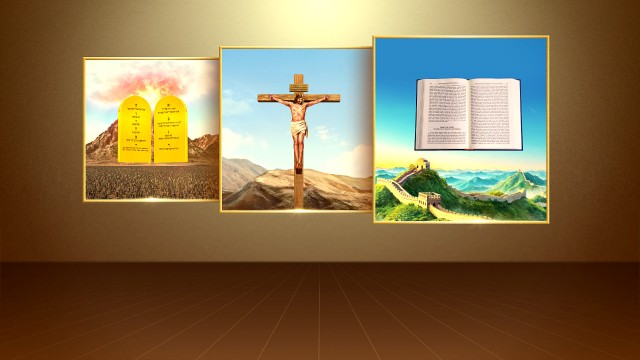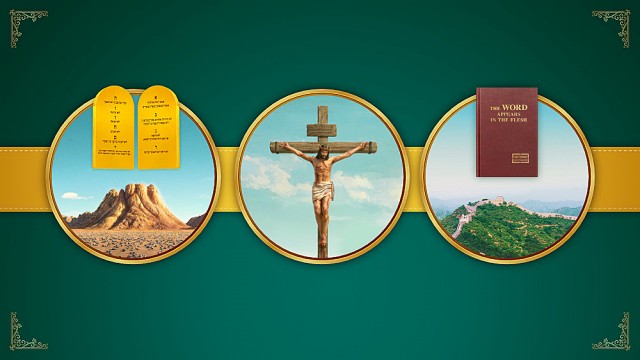The Bible is testimony to the work of God. It is through the Bible that all who believe in the Lord acknowledge that the heavens and earth and all things were created by God. It is because of the Bible that they behold the wonder, greatness, and omnipotence of God’s deeds. What’s more, the Bible contains many words of God and experiential testimonies of man that are able to provide for the life of man, and are greatly edifying to man. Can we gain eternal life from reading the Bible? Or does the Bible not contain the way of eternal life?
Bible Verses for Reference:
“Search the scriptures; for in them you think you have eternal life: and they are they which testify of Me. And you will not come to Me, that you might have life” (Jhn 5:39–40).
“I am the way, the truth, and the life: no man comes to the Father, but by Me” (Jhn 14:6).
Relevant Words of God:
In reading the Bible people can also gain many ways of life that cannot be found in other books. These ways are the ways of life of the work of the Holy Spirit experienced by prophets and apostles in ages past, and many of the words are precious, and can provide what people need. Thus, people all like to read the Bible. Because there is so much hidden in the Bible, people’s views toward it are unlike those toward the writings of great spiritual figures. The Bible is a record and collection of the experiences and knowledge of people who served Jehovah and Jesus in the old and new age, and so later generations have been able to gain much enlightenment, illumination, and paths to practice from it. The reason why the Bible is higher than the writings of any great spiritual figure is because all of their writings are drawn from the Bible, their experiences all come from the Bible, and they all explain the Bible. And so, although people can gain provision from the books of any great spiritual figure, they still worship the Bible, for it seems so high and profound to them! Although the Bible brings together some of the books of the words of life, such as the Pauline epistles and Petrine epistles, and although people can be provided for and assisted by these books, these books are still out of date, they still belong to the old age, and no matter how good they are, they are only suitable for one period, and are not everlasting. For God’s work is always developing, and it cannot simply stop at the time of Paul and Peter, or always remain in the Age of Grace in which Jesus was crucified. And so, these books are only suitable for the Age of Grace, not for the Age of Kingdom of the last days. They can only provide for the believers of the Age of Grace, not for the saints of the Age of Kingdom, and no matter how good they are, they are still obsolete. It is the same with Jehovah’s work of creation or His work in Israel: No matter how great this work was, it would still become outdated, and the time would still come when it passed. God’s work is also the same: It is great, but there will come a time when it ends; it cannot always remain amidst the work of the creation, nor among that of the crucifixion. No matter how convincing the work of the crucifixion, no matter how effective it was in defeating Satan, work is, after all, still work, and the ages are, after all, still ages; work cannot always stay on the same foundation, nor can times never change, because there was the creation and there must be the last days. This is inevitable! Thus, today the words of life in the New Testament—the epistles of the apostles, and the Four Gospels—have become historical books, they have become old almanacs, and how could the old almanacs take people into the new age? No matter how capable these almanacs are of providing people with life, no matter how able they are to lead people to the cross, are they not outdated? Are they not bereft of value? Thus, I say you should not blindly believe in these almanacs. They are too old, they cannot bring you into the new work, and they can only burden you. Not only can they not bring you into the new work, and into new entry, but they take you into old religious churches—and if that were the case, would you not be regressing in your belief in God?
Excerpted from “Concerning the Bible (4)” in The Word Appears in the Flesh
Many people believe that understanding and being able to interpret the Bible is the same as finding the true way—but in fact, are things really so simple? No one knows the reality of the Bible: that it is nothing more than a historical record of God’s work, and a testament to the previous two stages of God’s work, and that it offers you no understanding of the aims of God’s work. Everyone who has read the Bible knows that it documents the two stages of God’s work during the Age of Law and the Age of Grace. The Old Testament chronicles the history of Israel and Jehovah’s work from the time of creation until the end of the Age of Law. The New Testament records Jesus’ work on earth, which is in the Four Gospels, as well as the work of Paul—are these not historical records? Bringing up the things of the past today makes them history, and no matter how true or real they might be, they are still history—and history cannot address the present, for God does not look back on history! And so, if you only understand the Bible, and understand nothing of the work God intends to do today, and if you believe in God but do not seek the work of the Holy Spirit, then you do not understand what it means to seek God. If you read the Bible in order to study the history of Israel, to research the history of God’s creation of all the heavens and earth, then you do not believe in God. But today, since you believe in God, and pursue life, since you pursue the knowledge of God, and do not pursue dead letters and doctrines or an understanding of history, you must seek God’s will of today, and you must look for the direction of the Holy Spirit’s work. If you were an archeologist you could read the Bible—but you are not, you are one of those who believe in God, and you had best seek God’s will of today.
Excerpted from “Concerning the Bible (4)” in The Word Appears in the Flesh
Perhaps what you now desire is to gain life, or perhaps you desire to gain the truth. Whatever the case, you wish to find God, to find the God that you can rely on, and who can provide you with eternal life. If you wish to gain eternal life, you must first understand the source of eternal life and must first know where God is. I have already said that only God is immutable life, and only God possesses the way of life. Since His life is immutable, it is thus eternal; since only God is the way of life, God Himself is thus the way of eternal life. As such, you should first understand where God is, and how to gain this way of eternal life. Let us now engage in fellowship on these two issues separately.
If you truly wish to gain the way of eternal life, and if you are voracious in your search for it, then first answer this question: Where is God today? Perhaps you would reply, “God lives in heaven, of course—He wouldn’t be living in your home, would He?” Perhaps you might say that God obviously lives among all things. Or you might say that God lives in each person’s heart, or that God is in the spiritual world. I don’t deny any of this, but I must clarify the issue. It isn’t totally correct to say that God lives in the heart of man, but neither is it entirely wrong. That is because, among believers in God, there are those whose belief is true and those whose belief is false, there are those of whom God approves and those of whom He disapproves, there are those who please Him and those whom He detests, and there are those whom He makes perfect and those whom He eliminates. And so I say that God lives in but a few people’s hearts, and these people are undoubtedly those who truly believe in God, those of whom God approves, those who please Him, and those whom He makes perfect. They are the ones who are led by God. Since they are led by God, they are the people who have already heard and seen God’s way of eternal life. Those whose belief in God is false, those who are not approved by God, those who are despised by God, those who are eliminated by God—they are bound to be rejected by God, are bound to remain without the way of life, and are bound to remain ignorant of where God is. In contrast, those who have God living in their hearts know where He is. They are the people unto whom God bestows the way of eternal life, and they are the ones who follow God. Now do you know where God is? God is both in the heart of man and at man’s side. He is not only in the spiritual world, and above all things, but even more on the earth upon which man exists. And so the arrival of the last days has taken the steps of God’s work into new territory. God holds sovereignty over all things in the universe, and He is the mainstay of man in his heart, and moreover, He exists among man. Only in this way can He bring the way of life to mankind, and bring man into the way of life. God has come to earth, and lives among man, so that man may gain the way of life, and so that man may exist. At the same time, God also commands all things in the universe, so that they might cooperate with His management among man. And so, if you only acknowledge the doctrine that God is in heaven and in the heart of man, yet do not acknowledge the truth of God’s existence among man, then you shall never gain life, and shall never gain the way of truth.
God Himself is life, and the truth, and His life and truth coexist. Those who are incapable of gaining the truth shall never gain life. Without the guidance, support, and provision of the truth, you shall only gain letters, doctrines, and, above all, death. God’s life is ever-present, and His truth and life coexist. If you cannot find the source of truth, then you will not gain the nourishment of life; if you cannot gain the provision of life, then you will surely have no truth, and so apart from imaginations and notions, the entirety of your body shall be nothing but your flesh—your stench-ridden flesh. Know that the words of books do not count as life, the records of history cannot be feted as the truth, and the regulations of the past cannot serve as an account of words presently spoken by God. Only that which is expressed by God when He comes to earth and lives among man is the truth, life, God’s will, and His current way of working. If you apply the records of words spoken by God during ages past to today, that makes you an archaeologist, and the best way of describing you is as an expert on historical heritage. That is because you always believe in traces of the work that God did in times past, only believe in the shadow of God left from when He previously worked among man, and only believe in the way that God gave to His followers in former times. You do not believe in the direction of God’s work today, do not believe in the glorious countenance of God today, and do not believe in the way of truth presently expressed by God. And so you are undeniably a daydreamer who is completely out of touch with reality. If now you still cling to words that are incapable of bringing life to man, then you are a hopeless piece of deadwood,[a] for you are too conservative, too intractable, too impervious to reason!
Excerpted from “Only Christ of the Last Days Can Give Man the Way of Eternal Life” in The Word Appears in the Flesh
Christ of the last days brings life, and brings the enduring and everlasting way of truth. This truth is the path by which man gains life, and it is the only path by which man shall know God and be approved by God. If you do not seek the way of life provided by Christ of the last days, then you shall never gain the approval of Jesus, and shall never be qualified to enter the gate of the kingdom of heaven, for you are both a puppet and prisoner of history. Those who are controlled by regulations, by letters, and shackled by history will never be able to gain life nor gain the perpetual way of life. This is because all they have is turbid water which has been clung to for thousands of years instead of the water of life that flows from the throne. Those who are not supplied with the water of life will forever remain corpses, playthings of Satan, and sons of hell. How, then, can they behold God? If you only try to hold on to the past, only try to keep things as they are by standing still, and do not try to change the status quo and discard history, then will you not always be against God? The steps of God’s work are vast and mighty, like surging waves and rolling thunders—yet you sit passively awaiting destruction, clinging to your folly and doing nothing. In this way, how can you be considered someone who follows the footsteps of the Lamb? How can you justify the God that you hold on to as a God who is always new and never old? And how can the words of your yellowed books carry you across into a new age? How can they lead you to seek the steps of God’s work? And how can they take you up to heaven? What you hold in your hands are letters that can provide but temporary solace, not truths that are capable of giving life. The scriptures you read can only enrich your tongue and are not words of wisdom that can help you know human life, much less the paths that can lead you to perfection. Does this discrepancy not give you cause for reflection? Does it not make you realize the mysteries contained within? Are you capable of delivering yourself to heaven to meet God on your own? Without the coming of God, can you take yourself into heaven to enjoy family happiness with God? Are you still dreaming now? I suggest, then, that you stop dreaming and look at who is working now—look to see who is now carrying out the work of saving man during the last days. If you do not, you shall never gain the truth, and shall never gain life.
Excerpted from “Only Christ of the Last Days Can Give Man the Way of Eternal Life” in The Word Appears in the Flesh
- Footnotes:
- a. A piece of deadwood: a Chinese idiom, meaning “beyond help.”








